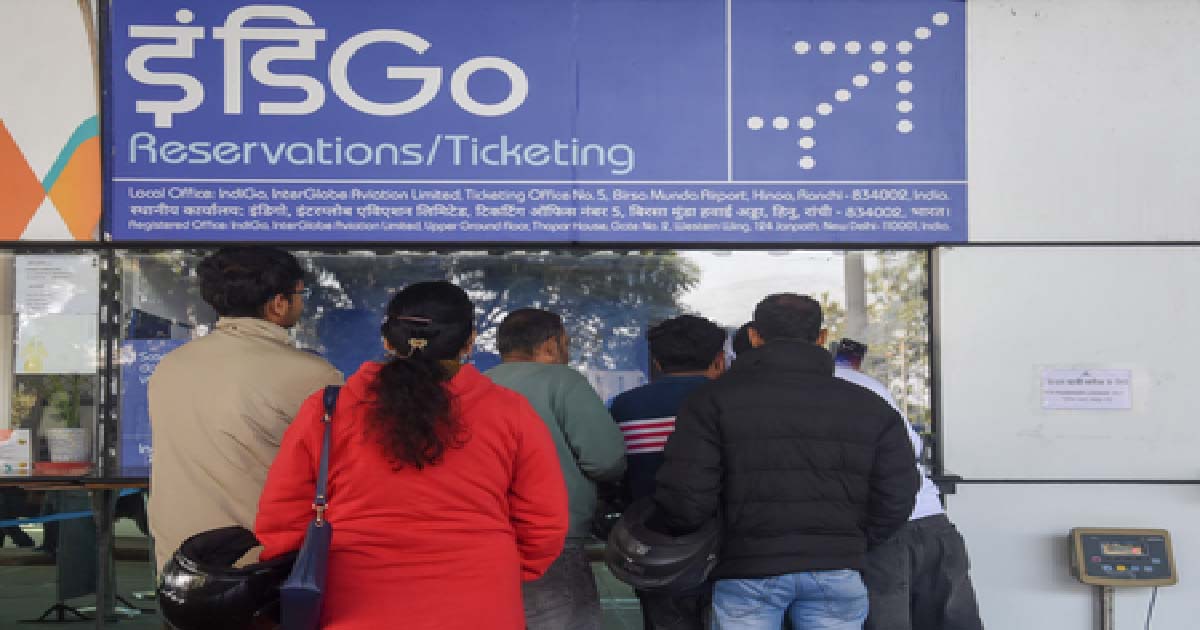Business
ABGSL scam: ICICI, SBI helmed by women when fraud detected
Top women bankers headed the private ICICI Bank and public sector State Bank of India when the Gujarat-based ABG Shipping Ltd (ABGSL) mega scam of Rs 22,842 crore was quietly brewing.
While ICICI Bank was helmed by the high-profile Chanda Kochhar till October 2018, when she quit in a cloud of allegations, the SBI was captained by Arundhati Bhattacharya, who retired in October 2017.
Of the reported Rs 22,842 crore frauds, the ICICI Bank took the biggest hit of Rs 7,089-crore and SBI ranks third with an exposure of Rs 2,925 crore, with IDBI Bank Ltd. sandwiched in the second slot and duped of Rs 3,639 crore.
Interestingly, the SBI’s Forensic Audit Report (January 18, 2019) — on which the CBI finally lodged its complaint — covers the period April 2012-July 2017, when the ABGSL scam took place — and said the accused “colluded together and committed illegal activities, including diversion of funds, misappropriation, criminal breach of trust and for purposes other than for which the funds are released by the Bank.”
However, the banking unions and experts fume at the manner in which massive public monies have again been blown off in the scam and how the banks are now “shifting the entire blame on the borrowers”.
“Was the entire banking system sleeping during these goings-on. The Reserve Bank of India conducts audits and also has its representative on the bank boards. What were they doing at that time and what was their exact role in the scam,” demanded United Forum of Banking Unions Convenor Devidas Tuljapurkar.
Trade Unions Joint Action Committee (TUJAC) Convenor and banking expert Vishwas Utagi wondered how can the CBI ethically take at face value the SBI’s contentions that the bank officials are not involved, particularly when it has been duped of huge public funds, and whether the other consortium members have also adopted a similar stand.
“In such gigantic frauds involving a big banking consortium, all persons above the GM level are definitely responsible. Will the CBI investigate or connive with SBI? We demand the CBI should honestly investigate from the top — probe Chairpersons, Managing Directors, Directors, etc. to unravel the murky truth,” said Utagi.
Referring to the SBI’s purported ‘accommodating’ stance vis-a-vis AGBSL, All India Bank Officers Association (AIBOA) General Secretary S. Nagarajan said the banks are not sympathetic when it comes to even small Education Loans by needy students.
“Whenever such huge loans are cleared at the Consortium leader’s request, did the other banks cross-check, monitor the accounts or seem enhanced security? If not, then there is something fishy,” Nagarajan pointed out.
Virtually defending ABGSL, the SBI alluded to its glowing past performance of 165 vessels built in 16 years, how the global shipping industry crisis hit with a fall in commodity demand, prices, cancellations and no fresh orders even from defence post-2015.
“The company was finding it very difficult to achieve milestones, as envisaged in CDR. Thus, the company was unable to service the interest and installments on the due date,” said the SBI note to CBI, sounding like a tear-jerker.
Utagi said that since the fraud has been established, even the Enforcement Directorate (ED) and other agencies must also join the investigations to track the money trail and the ultimate beneficiaries of the public funds, as was done in the Punjab National Bank scam by diamantaires Nirav Modi-Mehul Choksi five years ago.
Tuljapurkar feels that since banks have made 100 per cent provisions for NPAs, there will be no new losses accruing from this, and called for a thorough probe despite the huge delays.
Business
LT Foods drops over 6.5 pc, other Indian rice stocks also slide

Mumbai, Dec 9: Shares of leading Indian rice companies fell sharply on Tuesday, after US President Donald Trump hinted that he may impose fresh tariffs on agricultural imports, specifically targeting Indian rice and Canadian fertilisers.
The statement triggered immediate selling in stocks linked to the rice trade. LT Foods was the biggest loser, with its share price slipping 6.85 per cent to Rs 366.55.
Shares of KRBL also declined, falling 1.14 per cent, while GRM Overseas dropped 4.46 per cent.
The sudden slide reflected investor concerns that any new US tariffs could hurt export demand and impact earnings for these companies.
Trump made his remarks during a White House event where he announced new support measures for US farmers.
His comments come at a time when trade tensions between the United States and India continue to resurface.
India remains the world’s largest rice producer, with an output of 150 million tonnes and a 28 per cent share in global production.
It is also the top exporter, accounting for 30.3 per cent of global rice exports in 2024–2025, data from the Indian Rice Exporters Federation showed.
Despite this large global presence, India’s rice exports to the US are relatively small.
According to the India Brand Equity Foundation, India shipped around 234,000 tonnes of rice to the US in the 2024 financial year, which is less than 5 per cent of its total global basmati exports of 5.24 million tonnes.
West Asian countries remain the biggest buyers of Indian rice. Among the varieties exported worldwide, the Sona Masoori variety is especially popular in markets like the US and Australia.
The US, under Trump’s leadership, has already imposed steep tariffs on India, including a 50 per cent tariff — its highest — along with a 25 per cent levy on India’s Russian oil imports.
Business
IndiGo disruptions may cause revenue loss, penalties to company: Report

New Delhi, Dec 8: Widespread flight disruptions at IndiGo are credit negative, and refunds and compensation could cause it “significant financial damage”, credit rating agency Moody’s warned on Monday.
In a note, Moody’s said that regulatory penalties from the Directorate General of Civil Aviation (DGCA) remain possible as the airline failed to plan for aviation rules communicated over a year earlier.
The crisis struck as the airlines entered their peak winter schedule, with “significant lapses in planning, oversight and resource management” as the Phase 2 of the Flight Duty Time Limitation (FDTL) rules were introduced on November 1, 2025, after being communicated more than a year earlier, it noted.
The rules reclassified midnight–6 a.m. duties as night duty and cut permissible landings in 24 hours from six to two or three. The agency said that IndiGo’s lean operating model lacked resilience to integrate the change, forcing a system‑wide schedule reset.
Over 1,600 flights were cancelled on December 5, and over 1,200 were grounded in November, with cancellations beginning on December 2. Moody’s said IndiGo is yet to fully restore normal operations.
IndiGo said it was set to operate over 1,800 flights on Monday, up from 1,650 on Sunday, adding that more than 4,500 bags have been delivered to respective customers, and “we are on track to deliver the rest in the next 36 hours”.
The airline said it expects a return to full schedules by mid-December, adding that it is working “round the clock” to normalise operations.
It has so far refunded Rs 827 crore to affected passengers, and the rest is under process for cancellations up to December 15.
Union Civil Aviation Minister K. Rammohan Naidu said in the Parliament on Monday that the government has initiated a thorough inquiry into the matter.
“IndiGo was supposed to manage the crew and roster…We will take strict action. We will set an example for every airline. If there is any non-compliance, we will take action,” he said on the floor of the Rajya Sabha.
Business
IndiGo Crisis Day 7: Mumbai Feels The Heat As Week-Long Flight Issues Deepen Nationwide; 32 Cancellations Reported Today

Mumbai: air travel schedule remained heavily disrupted on Monday as IndiGo’s nationwide operational meltdown stretched into its seventh straight day, causing widespread cancellations across major Indian airports. While the crisis has affected passengers throughout the country, Mumbai, one of IndiGo’s busiest hubs, continued to witness major cancellations that derailed travel plans from early morning.
By 7 am, Mumbai’s Chhatrapati Shivaji Maharaj International Airport had recorded 32 IndiGo cancellations, 10 arrivals and 22 departures, impacting key routes to Chandigarh, Nagpur, Bengaluru, Hyderabad, Goa, Darbhanga, Kolkata and Bhubaneswar. Airport officials said the ripple effect of the disruptions was expected to continue through the day, adding to the nationwide tally of 309 flights impacted by Monday morning.
Across India, more than 224 cancellations were pre-planned and communicated to passengers, officials confirmed, as the airline attempted to manage the crisis strategically. IndiGo had reportedly begun processing 100 per cent refunds for passengers booked up to December 6, even as fresh cancellations continued to pile up.
Delhi’s Indira Gandhi International Airport reported the highest number of disruptions, with 134 IndiGo flights cancelled, 75 departures and 59 arrivals, making it the epicentre of the crisis. In response, the airport issued a public advisory urging passengers to check real-time flight status before heading out. Authorities said they were coordinating with airline teams to minimise chaos inside terminals.
Bengaluru’s Kempegowda International Airport confirmed 127 cancellations, 65 arrivals and 62 departures. Officials said the next status update would be provided later in the evening. Hyderabad’s Rajiv Gandhi International Airport recorded 77 disruptions, splitting between 38 arrivals and 39 departures.
At Srinagar Airport, 16 flights (8 arrivals and 8 departures) were cancelled, while Ahmedabad reported 18 cancellations by 8 am. Passenger crowds were also reported at terminals in Chennai, Jaipur and Mumbai, where many travellers waited for updates amid confusion.
Amid the escalating crisis, aviation regulator DGCA granted IndiGo CEO Pieter Elbers and COO Isidro Porqueras a one-time extension until 6 pm Monday to respond to the show-cause notice issued on December 6. The airline sought extra time citing “operational constraints linked to the scale of nationwide disruptions.” The DGCA, however, warned that no further extension will be granted, and said it would proceed ex parte if the reply is not submitted on time.
-

 Crime3 years ago
Crime3 years agoClass 10 student jumps to death in Jaipur
-

 Maharashtra1 year ago
Maharashtra1 year agoMumbai Local Train Update: Central Railway’s New Timetable Comes Into Effect; Check Full List Of Revised Timings & Stations
-

 Maharashtra1 year ago
Maharashtra1 year agoMumbai To Go Toll-Free Tonight! Maharashtra Govt Announces Complete Toll Waiver For Light Motor Vehicles At All 5 Entry Points Of City
-

 Maharashtra1 year ago
Maharashtra1 year agoFalse photo of Imtiaz Jaleel’s rally, exposing the fooling conspiracy
-

 National News1 year ago
National News1 year agoMinistry of Railways rolls out Special Drive 4.0 with focus on digitisation, cleanliness, inclusiveness and grievance redressal
-

 Maharashtra1 year ago
Maharashtra1 year agoMaharashtra Elections 2024: Mumbai Metro & BEST Services Extended Till Midnight On Voting Day
-

 National News1 year ago
National News1 year agoJ&K: 4 Jawans Killed, 28 Injured After Bus Carrying BSF Personnel For Poll Duty Falls Into Gorge In Budgam; Terrifying Visuals Surface
-

 Crime1 year ago
Crime1 year agoBaba Siddique Murder: Mumbai Police Unable To Get Lawrence Bishnoi Custody Due To Home Ministry Order, Says Report












